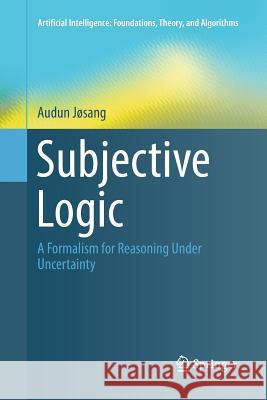Subjective Logic: A Formalism for Reasoning Under Uncertainty » książka
topmenu
Subjective Logic: A Formalism for Reasoning Under Uncertainty
ISBN-13: 9783319825557 / Angielski / Miękka / 2018 / 337 str.
Kategorie:
Kategorie BISAC:
Wydawca:
Springer
Seria wydawnicza:
Język:
Angielski
ISBN-13:
9783319825557
Rok wydania:
2018
Wydanie:
Softcover Repri
Ilość stron:
337
Waga:
0.50 kg
Wymiary:
23.39 x 15.6 x 1.91
Oprawa:
Miękka
Wolumenów:
01
Dodatkowe informacje:
Wydanie ilustrowane











